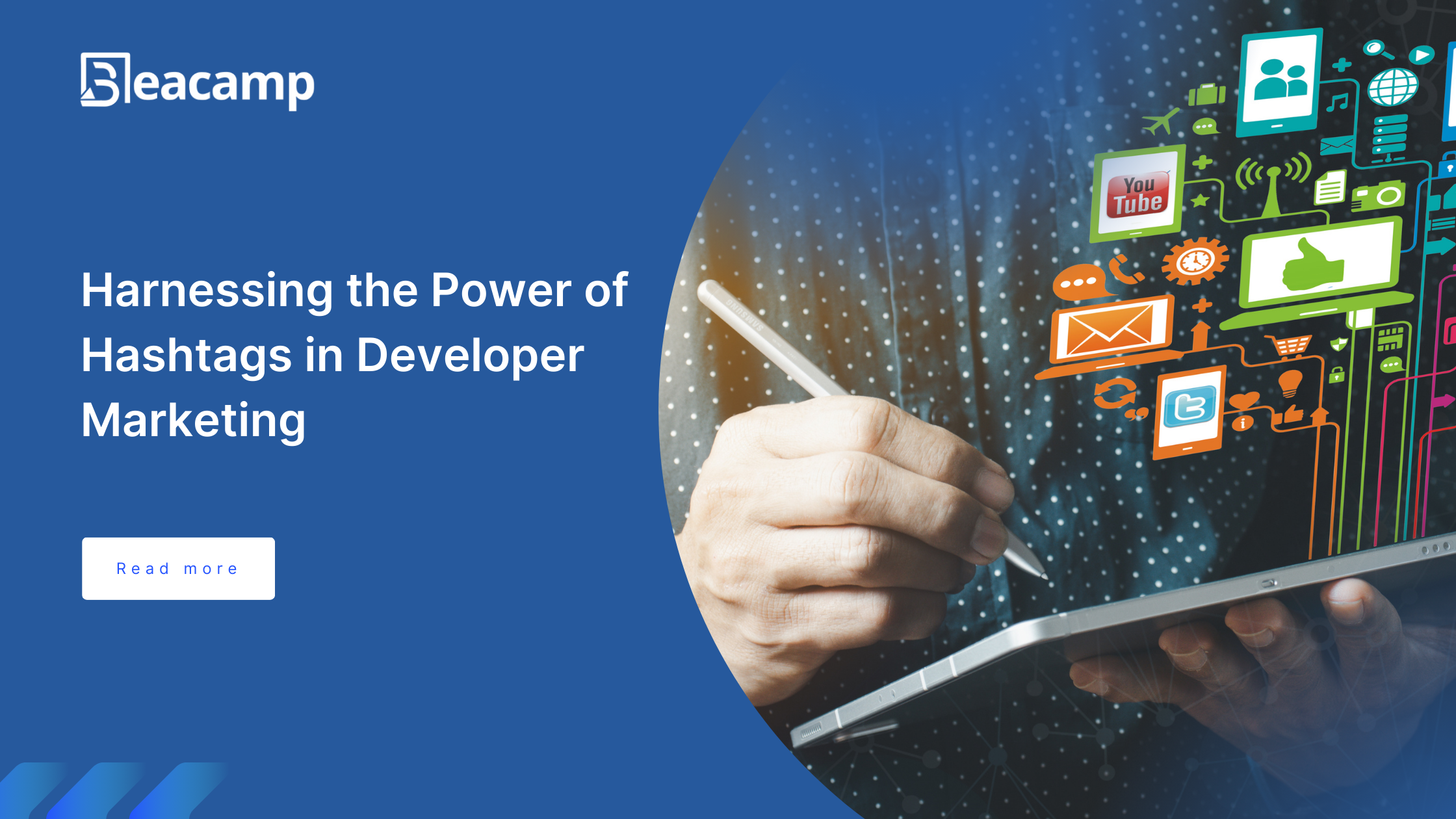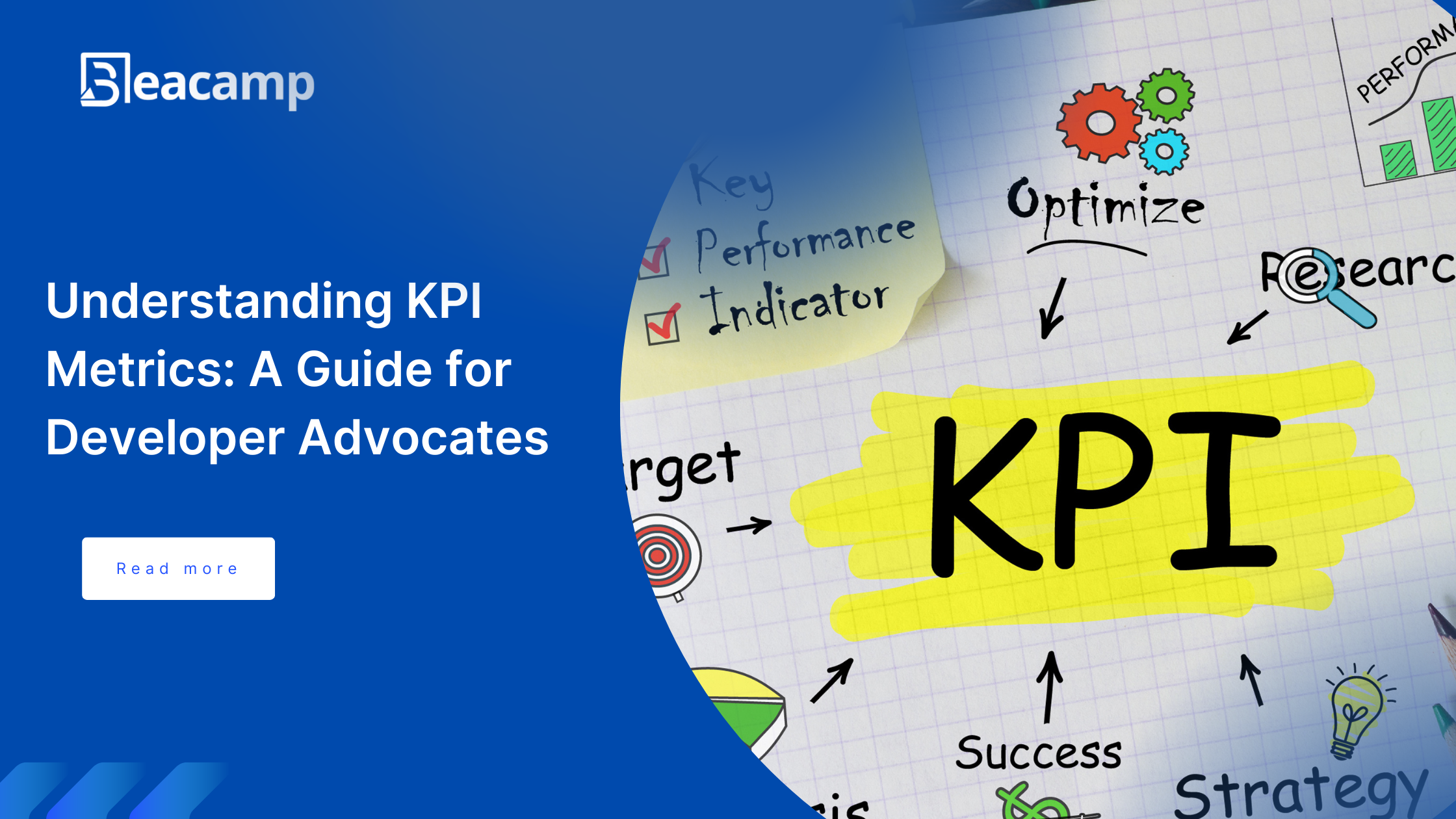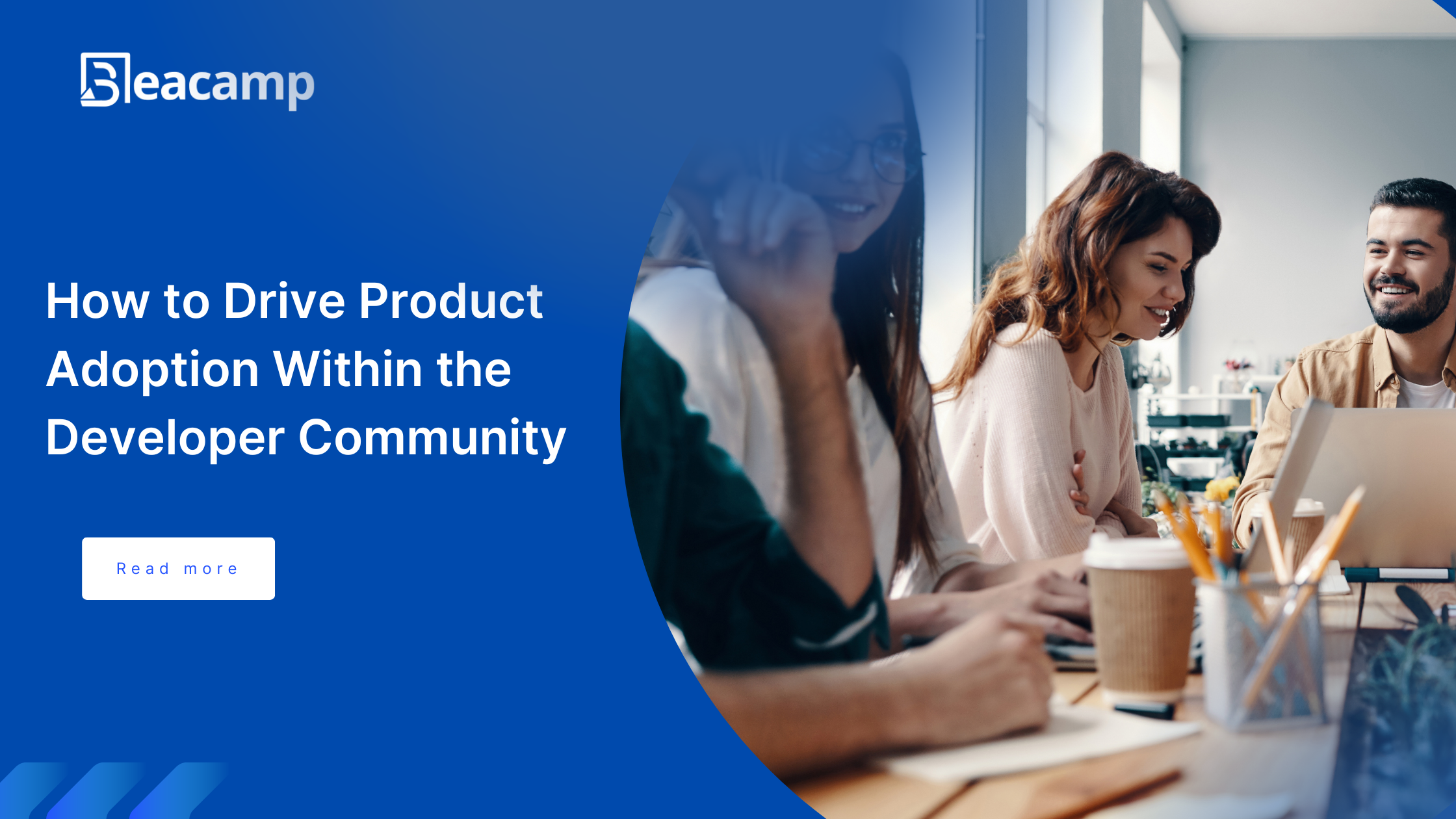Harnessing the Power of Hashtags
Social media plays a massive role in promoting brands, selling products, and facilitating various other marketing activities. As metadata tags, hashtags are powerful tools for organizing content on platforms like Facebook, Twitter, Instagram, and many others.
This article talks about the potential use of hashtags in developer marketing activities. It explores how hashtags can amplify reach, foster a sense of community, and drive meaningful conversations within the developer ecosystem.
Understanding Hashtags

Hashtags are metadata tags identified by the pound sign (#). They are used on social media platforms to organize or categorize content and make it more discoverable to a specific audience interested in a particular theme or topic.
Hashtags can aggregate social media posts around common subjects, allowing users to find and engage with content relevant to their interests easily. This makes it easier for users to connect with like-minded individuals and communities and discover new content they might not otherwise have found.
It can be used for various purposes, such as promoting a brand or product, increasing visibility and engagement, tracking conversations and trends, and driving traffic to websites or social media profiles. They have become integral to social media marketing and communication, and their effective use can significantly enhance online presence and reach.
Types of Hashtags
Several types of hashtags are used for different purposes and functions on social media and the internet.
- Branded Hashtags: These hashtags are unique and specific to a brand or a company. They are primarily used to promote the brand or company’s activities on social media, such as the brand’s identity, campaigns, events, and more. These hashtags usually have the brand/company’s name, slogan, or tagline of a campaign from the brand and are used across all brand-related content.
- Campaign Hashtags: These hashtags are crafted just for marketing campaigns or activities by a brand. They are designed or created to grow the support of the campaign, encourage participation, and track campaign engagements. They are often promoted through advertising and marketing channels.
- Trending Hashtags: These hashtags are popular keywords on social media platforms; they reflect real-time trends, viral memes, or news events. Using these hashtags aids in improving traction, increasing visibility, and increasing engagement with a wider audience.
- Community Hashtags: These hashtags are mostly used to unite users of common interests, hobbies, or topics. These hashtags are used to engage in conversations, silence, networking, and content sharing within a community.
- Event Hashtags: These hashtags are created for a specific event, show, conference, or live event and are used to encourage online conversations and engagements before, during, or after the event. Using these hashtags lets the attendees share updates on the event, engage with other attendees, especially if it’s an online event, and access the event-related content across social media.
- Content-Specific Hashtags: These hashtags are used to categorize and organize content based on specific topics, themes, and keywords. It helps users discover specific content and participate in ongoing discussions around the topics. It covers a wide range of topics, including technology, fashion, food, fitness, and lots more.
Here are some examples of popular hashtags within the developer communities:
- #DeveloperCommunity
- #Programming
- #CodeNewbie
- #100DaysOfCode
- #DevLife
- #TechTalk
- #OpenSource
- #WebDevelopment
- #DeveloperHumor
- #CodeChallenge
- #DevOps
- #AI
Benefits of Hashtags in Developer Marketing
Here are some benefits of hashtags you should take note of as a developer marketer:
- Increased Visibility: Hashtags have a way of making a brand’s content or marketing activities visible to its target audience. They also help attract new target audiences, expand reach, and drive traffic to their social media websites.
- Targeted Audience Engagement: Hashtags allow you to target specific niches or communities within the developer ecosystem. By using niche-specific hashtags, brands can engage with a highly targeted audience interested in their specific tech stack, programming language, or a specific tech concept.
- Enhanced Event Promotion: Hashtags play a huge role in promoting developer-focused events, conferences, and hackathons. Event organizers and brands use unique event hashtags to facilitate online conversations around upcoming events, grow the attendees, and generate buzz before, during, and after the event.
- Measurable Campaign Performance: Hashtags are powerful tools for developers and marketers to measure the performance of their social media campaigns. By monitoring the usage and engagement metrics of specific hashtags, developers can identify areas of improvement and optimize their marketing efforts. This data-driven approach allows for a more effective and targeted approach to social media marketing, ensuring that campaigns are reaching the right audience and achieving the desired results.
- Facilitated Community Building: Hashtags facilitate virtual communities where individuals share ideas, knowledge, and experiences with like-minded people, creating a sense of belonging and camaraderie. By encouraging active engagement and promoting meaningful connections, hashtags foster relationships, build credibility, and help individuals establish themselves within their chosen niche, fostering a vibrant and supportive online environment.
Strategies for Effective Hashtag Usage
Here are some strategies to optimize your hashtag usage in Developer Marketing:
- Research Relevant Hashtags: As a developer marketer, conduct research to identify popular and relevant hashtags within the developer community. Look for hashtags related to programming languages, frameworks, and technology trends. You can use tools like Hashtagify or RiteTag to discover trending hashtags. It will help you leverage their popularity and relevance in your marketing campaigns, making them more effective in reaching your target audience.
- Create Branded Hashtags: To create a strong brand identity and foster community engagement, leverage branded hashtags. Incorporate your brand name, slogan, or tagline into unique and memorable hashtags that resonate with your brand’s essence, campaigns, or events. Consistently use these hashtags across marketing channels to enhance brand recognition and inspire user-generated content. As a developer marketer, embrace the power of branded hashtags to create an exceptional brand experience and establish a vibrant online community.
- Encourage User Participation: To foster user participation and engagement, encourage your audience to engage with your brand by using company-specific hashtags, sharing user-generated content, and joining discussions centered around your hashtags. Incorporate clear calls-to-action (CTAs) in your social media posts, campaigns, and other platforms, prompting followers to share their experiences, contributions, and more. You can also actively recognize, and reward engaged participants, fostering a sense of community and belonging around your brand.
- Use Niche and Specific Hashtags: As a developer marketer, using specific hashtags is a strategic approach to resonating with your target audience and aligning with your marketing goals. By focusing on hashtags related to your products, services, or areas of specialization, you can attract a highly targeted audience interested in those specific topics or themes. Niche hashtags enable you to reach this audience effectively by increasing the engagement of your content.
Tools for Hashtag Management
So many tools available for hashtag management can help you discover, analyze, track, and optimize your hashtag usage across social media platforms.
Here are some popular tools for hashtag management:
- Hashtagify: This tool lets you discover trending hashtags, analyze their popularity and usefulness, and identify related hashtags for your brand.
- RiteTag: This tool provides real-time feedback on hashtag performance and suggests hashtags based on popularity, engagement level, and reach. It has browser extensions and integrations with popular social media platforms for easy use.
- Keyhole: This tool offers hashtag tracking, measures reach and engagement, and analyses conversations related to specific hashtags across social media platforms.
- TrendsMap: This real-time mapping tool visualizes trending topics and hashtags on Twitter based on geographic locations, lets you explore local and global trends, and tracks conversations around specific hashtags.
- Sprout Social: This tool offers hashtag monitoring and analytics like others by letting you track hashtag performance, monitor brand mentions, and analyze social media trends across multiple platforms using a customizable dashboard and advanced reporting features.
While so many other tools are available, these few are worth mentioning.
Conclusion
Hashtags are like magic wands for marketers, helping you make your brands more visible and connect with developers meaningfully. As developer marketers, you must understand how to use hashtags effectively. Whether creating your unique hashtags or jumping on trending ones, hashtags can help you reach a wider audience, start conversations, and build a community around your brand. They’re like a secret code connecting us with like-minded developers, helping us learn from each other and create something unique.
So, let’s embrace the power of hashtags! By using them strategically, you can amplify your reach, build relationships, and create a thriving ecosystem of collaboration and innovation. Let’s make some noise and show the world what we’re all about!




